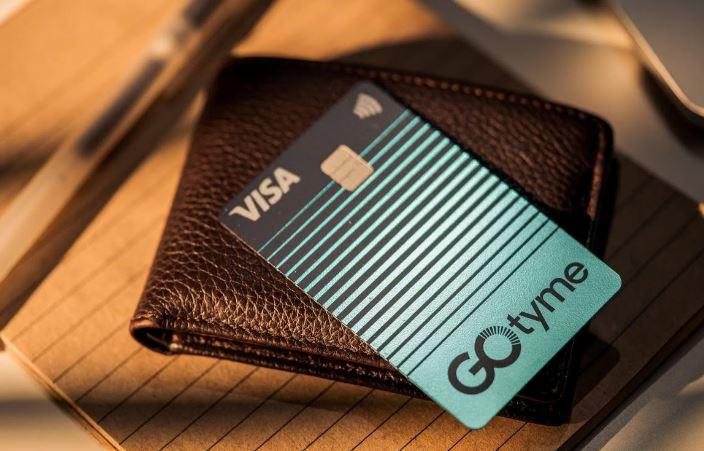Dec 2, 2023
Coinbase’s CEO wants crypto to play by the rules — and he’s bullish on Canada
Crypto went viral over the last year for all the wrong reasons — and epic $8-billion fraud case was just one of them. Last summer, as Bankman-Fried’s case worked through the U.S. court system, Alexander Mashinsky, founder of cryptocurrency platform Celsius, was hit with seven fraud charges. Weeks after Bankman-Fried’s conviction in early November, — the richest Canadian — pleaded guilty to U.S. money-laundering violations. appears to be taking a different approach to the freewheeling attitude of some of crypto’s biggest players. It preaches co-operation with government regulators, rather than sticking to the crypto movement’s libertarian origins. At a fireside chat with Shopify CEO Tobi Lutke in Toronto last Tuesday, Coinbase co-founder and CEO Brian Armstrong remembered worrying about unregulated exchanges in past board meetings. “This is not going to last,” Armstrong recalled thinking at the time. “Regulators don’t always move super quickly, but they do eventually act, and it’s going to be a very bad day. And that all came to fruition.” Coinbase hasn’t been able to entirely dodge friction with regulators. It is currently embroiled in a series of back-and-forth lawsuits with the U.S. Securities and Exchange Commission over allegations that it operated as an exchange, broker and clearing agency without registering with authorities. However, it seems interested in a more harmonious approach to oversight, and Armstrong believes a new beginning for the crypto industry is possible. Major investors, including pension funds, are increasingly interested in crypto. So are average Canadians looking to grow their own pot of money outside of the TSX or the bond market, an audience Coinbase is especially keen on tapping. Shortly before his appearance at last Tuesday’s fireside chat, Armstrong spoke with the Star from Toronto’s Shangri-La Hotel: No, not at all. Crypto is a lot of things. There’s bitcoin, there are stablecoins which are fiat-backed. There’s the whole world of Web3. One way that people interface with crypto is through centralized exchanges like Coinbase. We have really stringent “know your customer,” or KYC, programs. You’re not anonymous. We have anti-money laundering transaction monitoring — these things have allowed us to get licences and work with big bank partners. Those centralized players in crypto have got to follow all the rules. That’s very compatible with everything that’s put out there now. It is an open and decentralized system because if people are not happy with Coinbase, they can take all their crypto and move it somewhere else. So it’s an interoperable protocol between all the different crypto players in the world. If you’re unhappy with the Visa network — well, there’s only one company you can go through to get access to it. Crypto companies are using this open protocol that’s interoperable between all of these companies. It’s a lot closer to email, or the internet, or something like that. So it is decentralized, but each of the players in the centralized space are following the laws. That’s really compatible with government regulation. About 15 per cent of Canadians have used crypto so far. The Ontario Securities Commission said about 30 per cent are planning to use crypto in the next year. So why are so many people using it? Why are they interested in it? Let’s take bitcoin as an example. Bitcoin has guaranteed scarcity. People see it as an antidote to inflation. It’s a more digitally native form of money if they want to participate in ecommerce. Why are people using NFTs? They want to have a direct relationship with the creators of art and music and different things they’re excited about. It’s a little bit like the early days of the internet. Why would people use the internet, when they have radio and television and newspapers? I think the answer is that it was a democratizing force — it allowed anybody to participate on a level playing field. Crypto is kind of the same thing for financial services and the moving of value. No, actually. Quite the opposite. I think we see more regulatory clarity as something that will really grow the market. If you go back five or 10 years, there was an early adopter segment of crypto that was very libertarian, and they were excited about it being totally disconnected from institutions. But now, about 52 million Americans use crypto. So this is much broader. Where we see more regulatory clarity emerge, we see greater adoption. I think they’re fully compatible. Like everything that gets big enough in society, eventually, there are going to be rules created around it, and that’s fine. When you’re using an exchange like Coinbase, you’re going to have to do KYC and follow the rules, just like traditional financial services. But it’ll also enable a lot of innovation in the purely crypto-to-crypto world. There are also a lot of people in emerging markets who don’t have access to any good payment infrastructure who want access to the dollar and remittance payments that aren’t so expensive. Crypto is a technology that’s updating the financial system broadly, and so people are going to increasingly use it for those types of purposes. In general, it’s been really good. We found the regulators here are very open to dialogue. There’s a lot of political will to evolve the industry here and do it in a safe and trusted manner. I think something like 50 per cent of all the payments going through our platform now are through Interac. So that’s been a success. We have about 200 employees here now. I think it’s very early days, and so there’s a lot more we can do here to grow the market and bring in institutional customers, and get even deeper integration with bank partners. To allow larger sums of money to move through Interac would be an enabling step. There are high-net-worth clients and institutions that want to be wiring much larger sums, and to treat crypto as one of the many asset classes in their portfolio. We just came from a fireside chat this morning at RBC, which was great. We’re having productive conversations. But we’re starting to see a real eagerness to learn more about crypto and just have an open dialogue with various bank partners around the world. We work already with some of the largest banks in the world, like J.P. Morgan and BlackRock. They have very extensive diligence processes and turned over every stone in terms of our anti-money laundering procedures. So we’re optimistic that we’ll develop more healthy bank relationships like that in various countries. It’s different in every country around the world. One thing that’s really nice about the Canadian market is that there’s one regulator for both commodities and securities. In the U.S., there are two different federal regulators, so sometimes there’s a bit of jump ball played between them. Ideally, we would get more regulatory clarity published by the regulator, but we’re not getting that. I think there are two options. One is getting some case law created in the U.S. courts. The other option is through Congress passing new legislation. In the U.S., a couple of bills have gotten bipartisan support in the House committees. We’re hoping those go to a full House floor vote maybe next year. When I meet with people in D.C., they’re definitely looking at the comprehensive crypto legislation based in Europe. They’re actually ahead of where the U.S. is right now. Actually, 83 per cent of the G20 countries have crypto legislation in progress. So the U.S. is a little bit behind. But we’re hoping that those kinds of bills go through the House at some point, and get to the Senate. There’s no question that it’s been a bit of a black eye for the industry to have these high-profile cases. I think that the court case with FTX, and now this enforcement action with Binance, is actually a nice close to the chapter. It’s allowing the industry to turn the page. Crypto prices have rallied in the last 30 days; I think one of the reasons is that people feel like the bad actors are being cleaned out.






Jan 28, 2026
/The%20CoreWeave%20logo%20displayed%20on%20a%20smartphone%20screen_%20Image%20by%20Robert%20Way%20via%20Shutterstock_.jpg)




